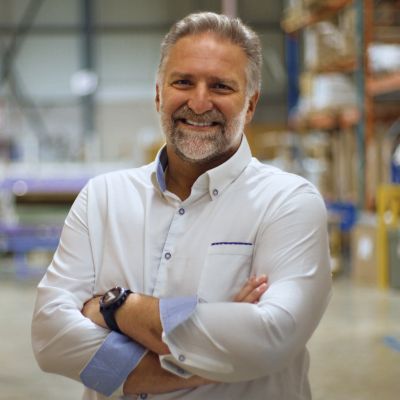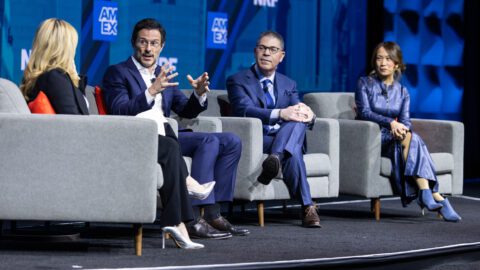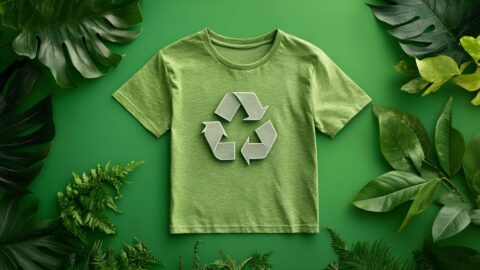The wellness concept has been steadily expanding, spreading from the foods we eat to beauty products and the clothes we wear and even to the products we bring into our homes. The search for furniture free of hidden toxins — particularly mattresses, where we spend one-third of our lives — was the original motivation for CEO Jack Dell’Accio when he founded Essentia Organic Mattress two decades ago.

“People in my family who were undergoing cancer treatments made me interested in what was irritating them, including not sleeping and pain, within their own environments,” Dell’Accio explained in an interview with Retail TouchPoints.
Fast forward to 2025: Essentia is now a thriving niche manufacturer of non-toxic, ethically sourced and certified organic mattresses and bedding products, with each component meeting both the GOLS (Global Organic Latex Standard) and GOTS (Global Organic Textile Standard). In fact, craftsmen working in the factory don’t require protective gear while blending Essentia’s trademarked Beyond Latex organic foam formulas, because clean air is at the core of the company’s values, according to its website.
Now Essentia has invested in a new U.S. manufacturing facility in Boca Raton, Fla., using state-of-the-art automation to “easily accommodate” producing 300 to 1,000 mattresses per day. Production there began earlier this month, and Dell’Accio shared why the economies Essentia will realize from the new facility will help grow the business — even though tariffs are raising costs both for raw materials and equipment.
Retail TouchPoints (RTP): What were some of the reasons Essentia needed to open a new factory?
Jack Dell’Accio: We had been manufacturing all of our mattresses in Montreal, but that factory was built 20 years ago to accommodate [just] the needs and volumes that we had anticipated in the short term. We’ve been stretching that one too far, so we’ve been wanting to open a Florida factory since we relocated here 12 years ago. COVID interrupted that, but about 18 months ago we realized it was time to get serious about it.
In South Florida, most manufacturing takes place in the suburbs, but I chose to take [a location] close to home, because I appreciate work-life balance. In Montreal the factory was five minutes from my house; in Boca it will be seven minutes away.
It’s a smaller footprint [than Montreal], with more automation and greater use of vertical space, as well as being a fully automated first-of-its-kind organic factory, and it will have 10X the capacity of the Montreal facility.
RTP: What impact have you seen to your business from the increased tariffs imposed this year?
Dell’Accio: We now have tariffs on the raw latex milk, which isn’t harvested in the U.S. — it comes from Indian, Sri Lankan and Indonesian plantations. We’re looking to hopefully stabilize at a 20% tariff on this raw material, and we are finding some savings in terms of import costs to the U.S. versus Canada, so it’s a bit of a balance.
The biggest shock was [paying] tariffs on the manufacturing equipment, because it’s only when they actually get to the U.S. that they are applied. You have to pivot and wiggle out of some tight spots, but I’m still satisfied and excited to be producing them here. There will be great economies from the new factory, which is important since we’re now doing some military work, and these aren’t high-margin products, so we need every angle covered for cost savings.
For example, we’re moving to full use of craft paper, which is fully recyclable, rather than plastic for the inside and outside mattress liners — something other mattress manufacturers have been trying to do. Additionally, new compression capabilities will shrink the [finished] packages by 50%, so our actual shipping costs will be coming down.
RTP: How did you first develop the Essentia product?
Dell’Accio: It sprang from people in my family who were undergoing cancer treatments and my exploring what was irritating them in their environments, such as dust and toxins. It was about learning what works and what doesn’t work. My family was in the latex business and we knew there were [wellness] benefits to organic latex, but it never had the [support] quality that memory foam had.
So I put on my research and development hat to try to reformulate the latex to have a slow response [to the pressure of someone sitting or lying on the bed], and I launched Essentia with the development and introduction of this Beyond Latex product. That was the beginning of my learning process, which has involved developing other products and getting more patents.
RTP: What makes the Essentia product so different from other mattresses?
Dell’Accio: The Beyond Latex foam allowed us to eliminate all the other layers in the mattress — springs, felt pads, quilted covers. Many times, the way the mattress industry works, there might be an organic cover, but there are lots of chemicals inside. There are so many different parts in a [traditional] mattress, including quilts that attract dust mites, the off-gassing of the fibers used in there, and allergens that are triggers. The organic latex allows us to create the purest products and deliver on what we want to — healthy sleep.
RTP: At one point you were selling through brick-and-mortar stores. Why did you move to focusing almost completely on DTC sales?
Dell’Accio: Yes, at one phase, we had 20 brick-and-mortar stores; our first one had been in Toronto. For us, COVID was kind of a blessing, because most customers actually found us online. We have a core group of customers that are focused on and conscious about their health, and we know that we’re appreciated by them. It’s a good place to be as far as the vibe with our customers.
Also, we found that we didn’t really mix well in the regular [brick-and-mortar mattress] playground. We don’t give stiff incentives, and we don’t compromise on quality in order to have a good-better-best comparison.















